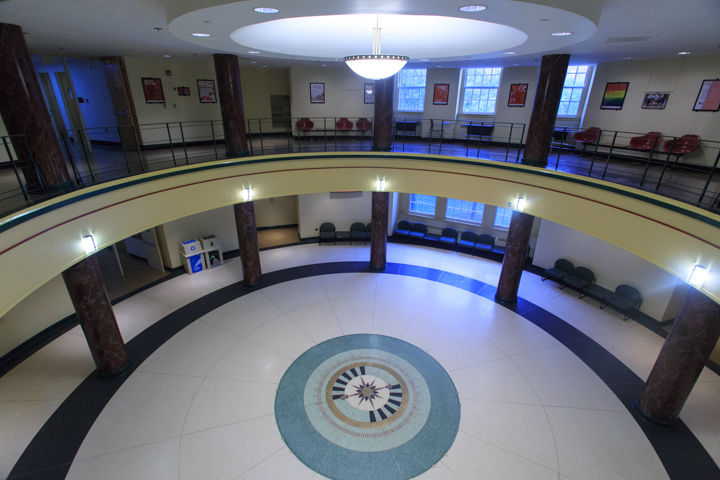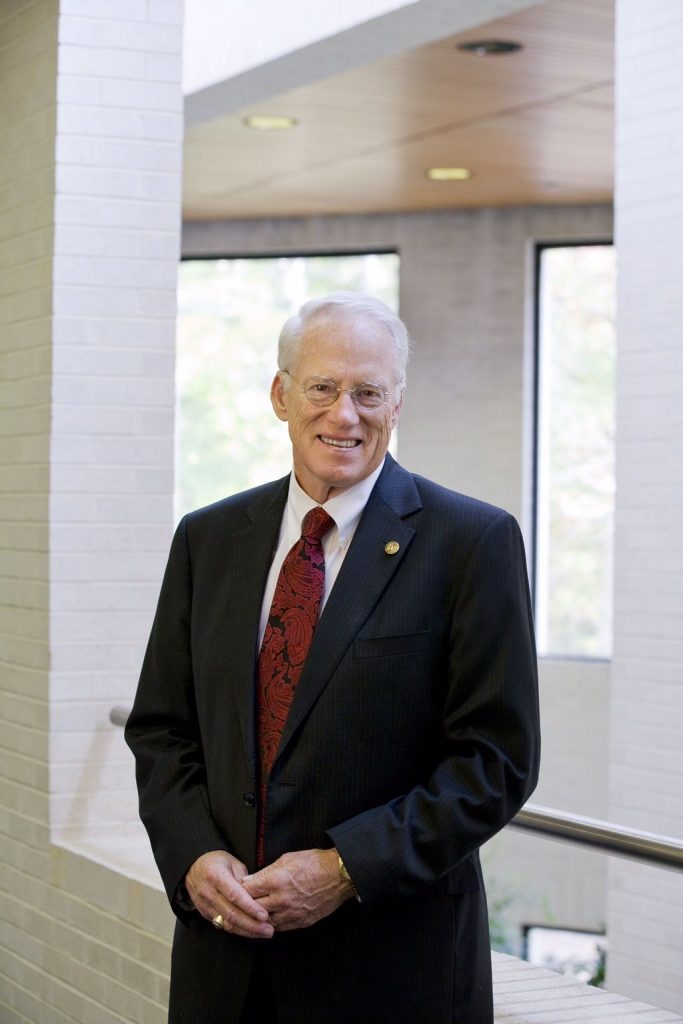In 1964, a frightened William “Brit” Kirwan walked through the doors of the University of Maryland’s Mathematics Building as a newly minted assistant professor.
“I walked into that building … scared, wondering if I could have a career at this university,” Kirwan said.
Fifty-one years later, this same building will bear his name.
In honor of the chancellor emeritus and former university president who served for 35 years at this university and 13 years at the helm of the University System of Maryland, university officials announced at an Oct. 2 Board of Trustees meeting that the Mathematics Building has been renamed William E. Kirwan Hall.
READ MORE: USM Center for Academic Innovation to be renamed to honor Brit Kirwan
Kirwan, who has been a tenured mathematics department faculty member for 46 years and served as its chairman for four years, said the honor is beyond anything he could have dreamed of.
“I’m just so deeply appreciative and honored that the university and the Board of Regents chose to recognize my long career in this way,” Kirwan said.
Within seconds of the announcement, the entire room rose to its feet, university spokesman Brian Ullmann said.
“It was an amazing moment, to be there in the room when 100 people — including some of this university’s biggest supporters — heard the news and immediately just rose to the standing ovation,” Ullmann said.
The Board of Regents approved the name change in late June, but the university decided to wait for the “right time and place” to make the formal announcement, Ullmann said. The naming ceremony for the building is scheduled for Oct. 29.

William “Brit” Kirwan
For former colleague and system spokesman Mike Lurie, the building’s new name is an “appropriate tribute” to a man who is “a mathematician by training and by heart.”
The mathematics department’s rise in prestige and popularity over the years — its graduate program is ranked 17th nationally, according to a 2014 U.S. News & World Report rankings list — is due largely in part to Kirwan’s outreach as department chairman and university president, said Larry Washington, a mathematics professor and associate chair for graduate studies.
“When he was chair back in the ’70s, we were not getting as many students from, let’s say, Montgomery County as we do now, and he worked very hard to publicize the university and point out that we have this really great mathematics department,” Washington said, noting that Kirwan even taught classes when he was chairman, which is “rare for someone in that busy position.”
Although Kirwan’s involvement with the department decreased after he took up other university positions — including provost and president from 1988 to 1998 — Washington said it was a matter of not playing favorites.
“It puts him in a difficult situation having been a member of the math department — when he makes a decision, he doesn’t want to appear to favor the math department or anybody else,” Washington said. “So I think he had to play it fair.”
After stepping down as chancellor June 30, Kirwan said he plans to move “back home” and dedicate his time and energy to the department beginning in January.
Apart from mathematics, Kirwan has also been a strong voice and leader on issues such as graduate retention, closing the achievement gap for minority students, college affordability and taking advantage of technology, Lurie said.
Kirwan has met with prominent figures, including President Obama, over the years to discuss these issues. Obama has “praised” the system and Kirwan’s Effectiveness and Efficiency Initiative, which started in 2003-04, accumulated $255 million in savings and allowed the system to freeze in-state tuition for four consecutive years, according to the system’s website.
“He’s really someone who has attained the national profile for his expertise and wisdom on the key issues of higher education,” Lurie said. “Not uncommon for President Obama to be inviting him to the White House.”
Kirwan’s other notable undertakings include the 2007 Closing the Achievement Gap Initiative, which has reduced this university’s achievement gap from 13 percent to 7 percent as of 2014, and the 2006 Course Redesign Initiative that encouraged “innovative new technology to redesign entire courses,” according to a congressional document.
READ MORE: New USM Chancellor Robert Caret to visit UMD campus in December
Kirwan said he doesn’t see his triumphs as personal achievements, but rather a collective victory.
“I’ve been a part of something really special,” Kirwan said. “You don’t often see in higher education either a department or a university make such a dramatic move in reputation and in quality. It’s a credit to a lot of people, and I’m just very proud to have taken part.”
The inside of the empty math building, soon to be William E. Kirwan Hall.
Portrait of University System of Maryland Chancellor William “Brit” Kirwan at the Wilson H. Elkins Building.




